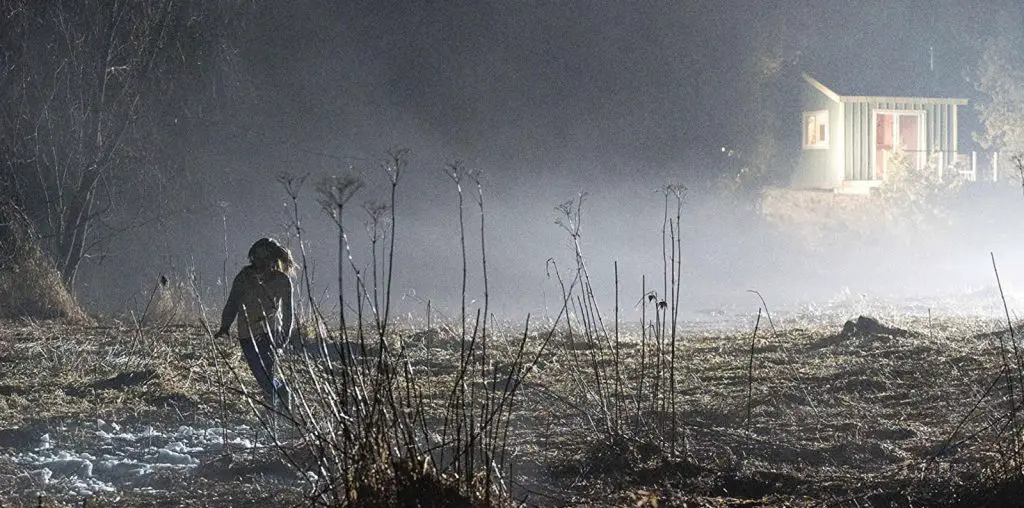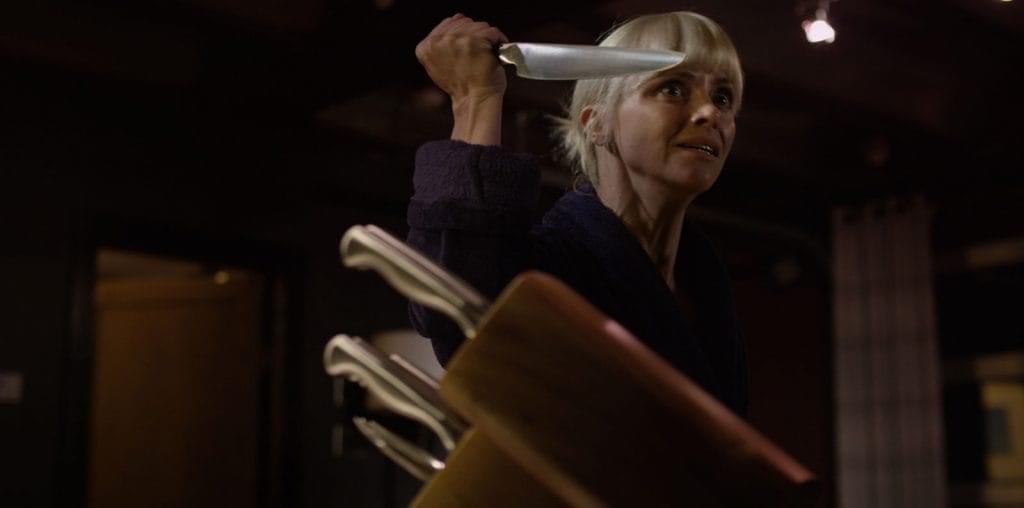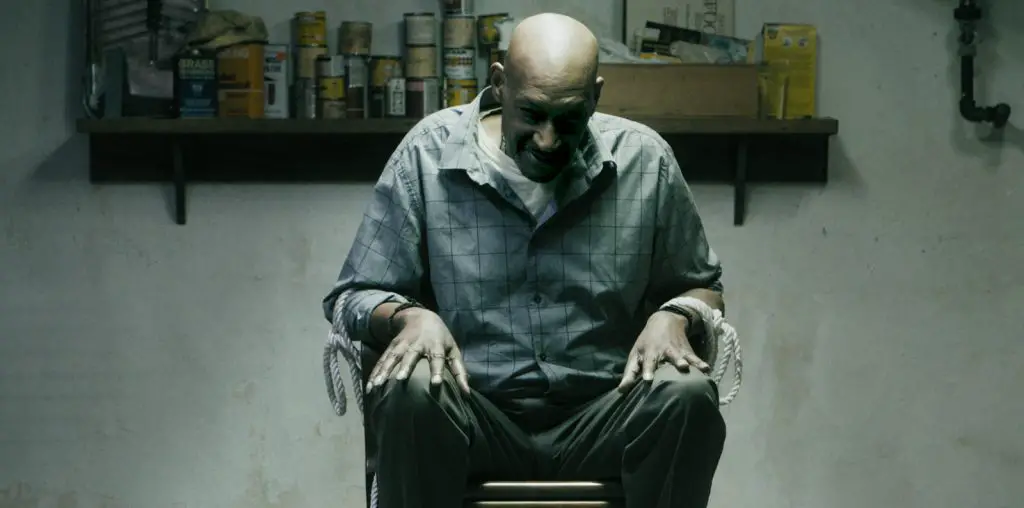
The idea of the transformative summer has been explored in many movies before. Everyone has experienced that specific summer, which shapes and transforms you. It’s as if you could feel your entire being ascending into the next stage of life. Actor-turned-director Joseph Cross makes his directorial debut with Summer Night, which mines the confusion and anticipation of what’s next.
Summer Night—based on a script by Jordan Jolliff—isn’t precisely new terrain. A lot of movies have presented as a snapshot in time as young people explore the real world around them as they become adults. There’s something almost comforting in the hazy familiarity but Summer Night feels a bit too generic and thinly plotted to establish a connection. It tries to capture the relaxed vibe of Richard Linklater—think Dazed and Confused or Everybody Wants Some!! ––but ends up feeling like an uninspired riff.
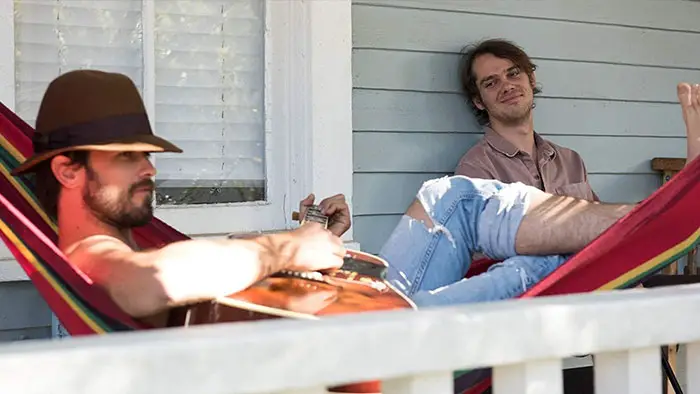
“…the movie centers around everyone coming together for a night at The Alamo for a concert series.”
Set in California, the premise of the movie centers around everyone coming together for a night at The Alamo for a concert series. Mel (Analeigh Tipton) is a bit distracted with some news and can’t seem to get her boyfriend Seth (Ian Nelson) to take anything seriously. He is concerned about joining his bandmates on stage and going out drinking after the show. Jameson (Ellar Coltrane), a young local teacher, is excited for his date to the show with Harmony (Victoria Justice) but there seem to be some remaining feelings for Corin (Elena Kampouris). In the mix are romantic entanglements involving Rabbit (Bill Milner) and Lexi (Lana Condor), while Andy (Justin Chatwin) plays ringleader over everyone’s business.
Summer Night is a true ensemble piece, with no main storyline for viewers to latch on to. In fact, the movie rarely gives enough time or agency to any of the characters for them to register. In its 98-minute running, one question remains nagging: why should we care about any of these people? The script gives a set of characters some real-world issues to deal with but doesn’t spend much time with them because of its ensemble structure.
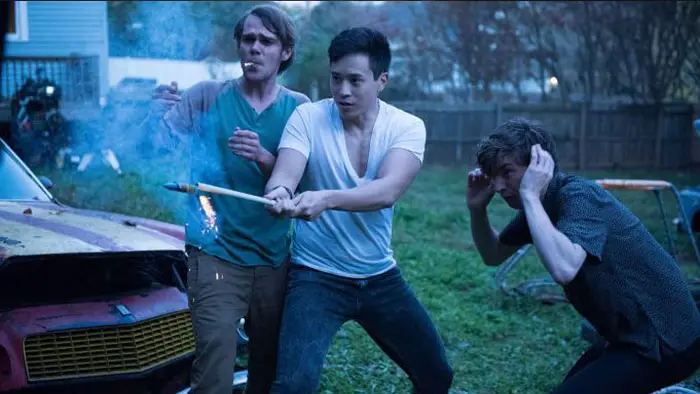
“…mines the confusion and anticipation of what’s next.”
Perhaps it is Cross and Jolliff’s hope their audience will see themselves in the characters on screen. As familiar as the territory is, the “one last summer night” trope is a way to evoke nostalgic feelings of a time passed in a person’s life. Summer Night has an easy, breezy presence about it, but there’s not much going on beneath the surface.
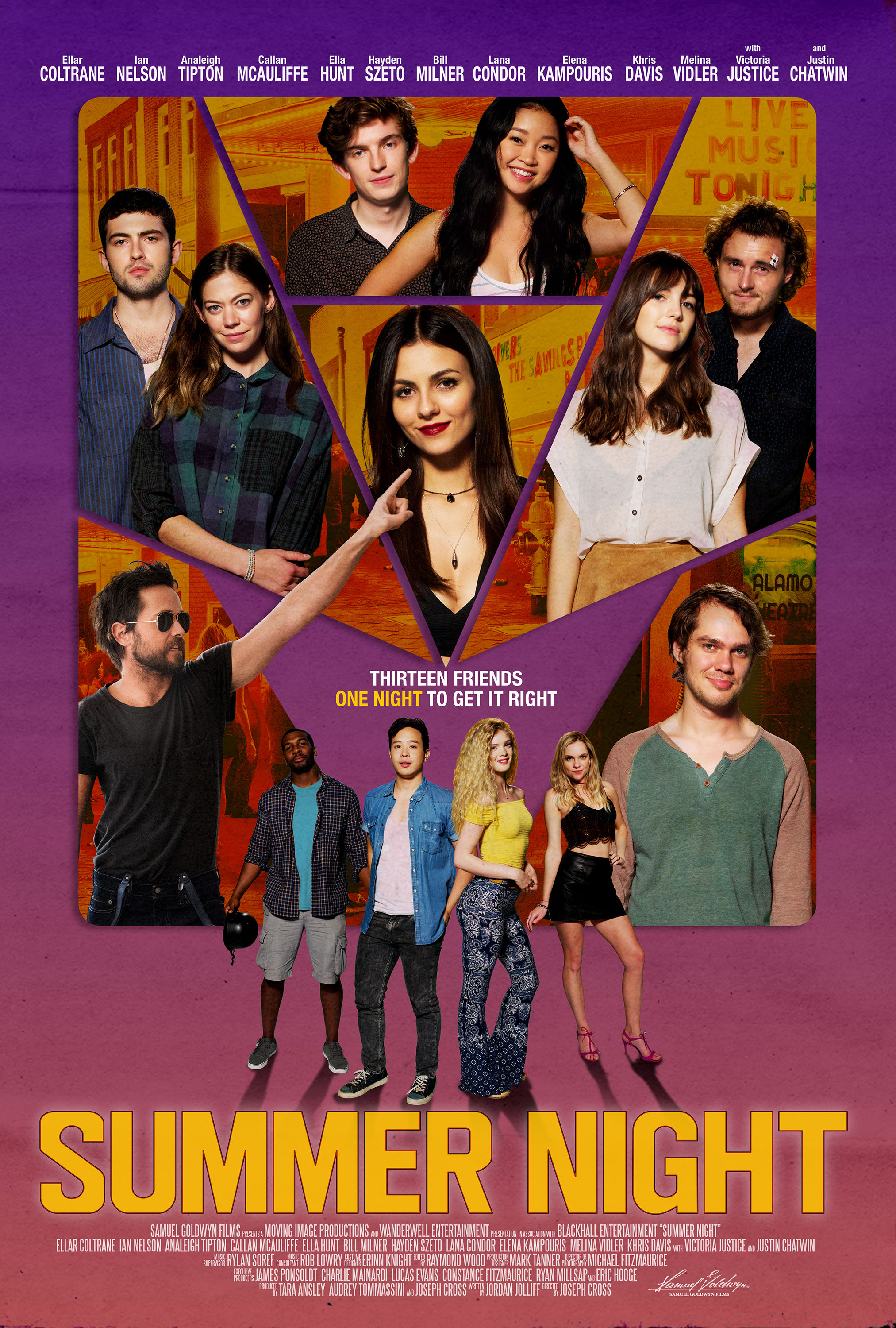
"…There’s something almost comforting in the hazy familiarity..."
